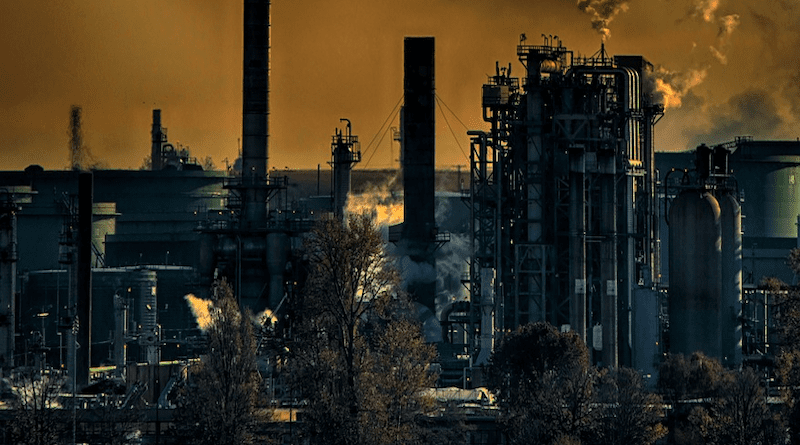Kassandra Helplessness: Operational Challenges And Future Prospects Of Deniş Thermal Power Plant – OpEd
The Kassandra helplessness echoes in the realm of energy analysts, akin to the tragic tale of the daughter of King Priam of Troy in mythology. Ignoring the warnings of foresighted scientists, much like Kassandra’s unheeded prophecies, leaves us feeling helpless in the face of future events.
Suppose we were local investors intending to establish a modern thermal power plant using Deniş coal. In that case, we would prioritize proven design excellence and operational sustainability, focusing on long-operating Soma-B no-5-6 steam boilers, each boasting a tested capacity of 165 MWe. However, our aspirations extend beyond mere limitations; we enhance the basic design with large E/P and FGD (Electrostatic Precipitator and Flue Gas Desulfurization) units, elevating coal drying with advanced preheating units. This way, we ensure environmental compatibility and energy efficiency.
Opting for a responsible investment perspective, we choose to situate the new thermal power plant in the untouched, vacant, and barren land northeast of the Deniş coal mine. This approach preserves natural beauty, minimizing adverse effects on the surrounding ecosystem. Despite the absence of water sources in the area, we establish an extensive pipeline system to transport raw water from nearby reservoirs. Additionally, we prioritize the construction of a modern ash dam, reflecting our commitment to environmentally friendly waste management.
Unfortunately, the power plant is constructed differently, deviating from initial recommended plans. The investor has the freedom to spend as they please, consult foreign experts they wish, rely on their intuition, make final decisions, but also bear the consequences. Examining the current situation, let’s first look at the initial installation details of the new thermal power plant:
Deniş Thermal Power Plant; 2 Units
– Plant Capacity: 2x 255 Mae
– Prime Contractor: Chinese
– Commercial Operation Date: 2019
– Investment Amount: $1.1 billion USD
– Main Fuel Used: Locally produced Deniş lignite with 1500-1600 kcal/kg LHV
– Lignite Characteristics: Ash %43, Moisture %23, Sulfur %1
– Steam Boiler Design Parameters: FW CFB w/ EPS & FGD at 565-600°C, 177/190 bar, 714 ton/hour MCR
– Steam Turbine: Siemens SST5-5000 HM-N model
– Overall Plant Efficiency: 45-46%
– Annual Primary Fuel Requirement: Approximately 4,000,000 tons of local Deniş coal
– Visible Coal Reserves: 140,000,000 tons
– Economic Life of the Plant: 30 years
– Annual Average Operating Hours: 6000-6500 hours
The thermal power plant design is solid CFB, with adequately sized ESP and FGD units. Constructing a finance package is a challenging process, but it’s finally completed. The installation period is reasonable. The new plant is located between the northwest forest, part of which is agricultural land, between the two Turkish villages, far from the coal source. This location has caused difficulties and interruptions in long-distance coal belt conveyor transportation, necessitating the costly use of coal transport trucks, negatively impacting overall efficiency and electricity prices. To address this issue, it is necessary to explore alternative transportation solutions and optimize logistics.
Unfortunately, the incompatible CFB design with very high ash content and abundant water in Deniş coal has led to excessive use and unnecessary dependency on supplementary fuel oil. To mitigate this challenge and improve overall plant performance, it is crucial to research innovative technologies and fuel mixture options. Without dewatering Deniş coal in wet conditions, as mud in summer and ice in winter enter the coal combustion chamber, hindering proper combustion, requiring a significant amount of additional fuel oil. In a coal-fired thermal power plant, 100% coal is continuously burned at maximum load (MCR).
When faced with a lack of coal preheating (dewatering) unit, priority should be given to urgently building a dewatering unit to ensure more efficient fuel combustion, reduce fuel oil usage, and lower emissions from the chimney. Simultaneously, seeking advice from experienced local and international experts is essential to enhance plant operations effectively.
Confronting operational challenges in the new thermal power plant, we need to solve problems using the expertise of both experienced professionals and promising young local engineers. Together, we embark on a journey of continuous improvement and problem-solving, ensuring the plant operates at full capacity.
In light of these challenges, a comprehensive evaluation of the capacity mechanism support and fuel oil addition is necessary, aiming to strike a balance between operational needs and environmental responsibility. The power plant has been built and commissioned. We applaud those who contributed to this effort.
Throughout history, Turkey has progressed in coal technology with technical support and investments from foreign countries. However, our country’s coals are unique and incomparable to those of any other nation. Only we can understand the characteristics and usage information of our own coals. Of course, technological and industrial developments may vary between countries. While some nations invested in coal technologies earlier and advanced, others may have less experience in this field. We have extensive local experience in both investment and long- term operation.
Technological advancements continue worldwide, and each country can develop its technological capabilities through unique research efforts. Turkey can undertake efforts to develop its coal technologies and train local experts. This process can be supported by research and development activities, contributions from universities, efforts from the private sector, and public investments.
We can progress not by comparing ourselves to the development levels of other countries but by evaluating our own potential and determining the right strategies. In this way, we can enhance our technological independence by cultivating our own experts in the field of coal technologies. While our investors learn through trial and error, we find ourselves writing articles in the midst of Kassandra helplessness.

